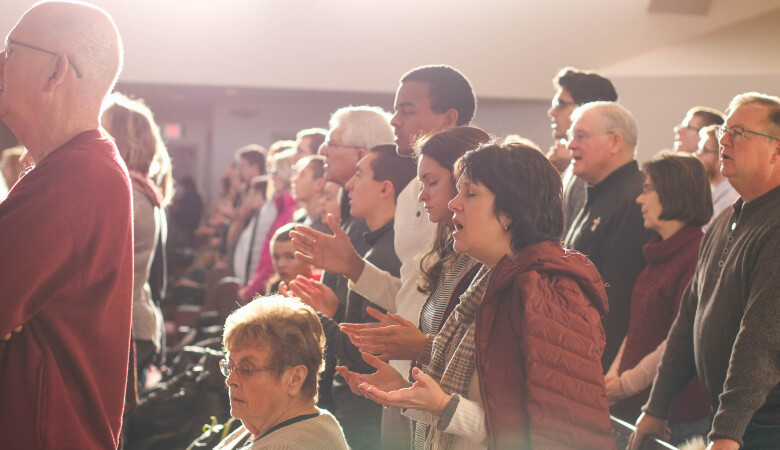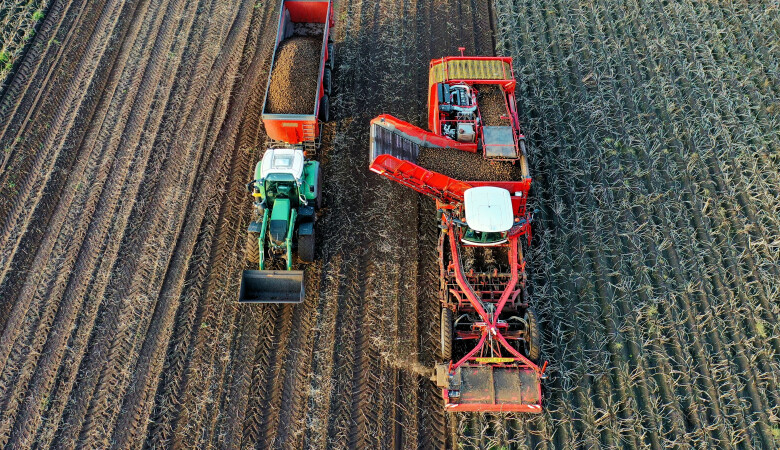Series: James
Patience in Suffering (James Sermon 11)
March 22, 2020 | Andy Davis
James 5:7-12
Sanctification, War Against the Flesh, Fruit of the Spirit, Prayer, Kindness of God, Holiness, Providence and Sovereignty of God
Introduction
The Impact of the Virus
Well, if you have a copy of the Word of God, I'd like to ask that you open it to James 5, we're going to be moving through. This is the second to last sermon, God willing, in the Book of James, and we've had an incredible journey through this book. But now, we could never have foreseen, when we began this study in James, these extraordinary times, and these are certainly extraordinary times, as Andy already mentioned. People all over the world are being impacted by the coronavirus. Total number of cases, I checked yesterday afternoon, over 300,000 worldwide, almost certainly, the number's higher this morning, with over 11,000 deaths as of yesterday afternoon, maybe even more now. In the US, over 25,000 cases, I think now, with 250 deaths. And along with that, as I mentioned, there's the staggering economic effect of this virus. Not only has the stock market crashed, with a loss of somewhere between 17-20%, depending on what index you look at, as I mentioned in my prayer, small businesses are struggling. We think about coffee shops and other businesses that depend on a steady stream of customers walking in and interacting, and they've had to shut down. Think about hourly workers who are wondering how they're going to make it with their income being curtailed. And along with all of this is the change in the lifestyle that we've felt.
Me streaming this sermon in an empty room is just one symbol of this. So also college students coming back, having their semester cut off, maybe they never even came back from their spring break. They never expected, when they went away on spring break, that it would turn out like this. Government schools closed all around us, elementary schools, middle schools, high schools, closed. We think about sports leagues that have stopped, all of the sports that people just enjoy, especially around this time. March Madness, the basketball tournament, closed down. Ordinarily, people would be following their brackets now, they were never filled out. People staying home hour after hour, day after day. Supermarkets displaying weirdly empty shelves in certain categories, as people are hoarding various items, and their behavior then forces a similar pattern of behavior in those that would not ordinarily do it. All of this is clear evidence, I think, of the fragility of our lives and of our lifestyles, of the fragility of our economy, the fragility of our physical health, our earthly hopes, all of these are fragile.
If the Lord Wills, We Will Live
Now, the last sermon that I preached live, here at First Baptist Church two weeks ago, was on the text of Scripture in James 4:13 and following, it says, "Now listen, you who say 'Today or tomorrow, we'll go to this or that city, spend a year there, carry on business and make money,' while you do not know what will even happen tomorrow. What is your life? It is a mist that appears for a little while and then vanishes. Instead you ought to say, 'If the Lord wills, we will live and do this or that.' As it is, you boast and brag, and all such boasting is evil." What a memorable statement that is. “If the Lord wills, you will live. And if the Lord wills, you will do this, or if the Lord wills, you will do that.” All of our times and our days are in the Lord's hand.
The Gospel For Unbelievers
Now, if you're not a Christian and you have been led, this morning, somehow, to come on this live stream service, I plead with you, right now, to realize the brevity of your life and flee to Christ while you still have time. You have an eternal soul created by Almighty God. He created all things, heaven and earth and everything in them, and as the creator, he is the king and ruler, and as the king and ruler, he makes laws by which we are to be governed. But like all of us, you have violated God's laws, and therefore are called by God a sinner, a transgressor, as all of us are. God sent His Son, our Lord and Savior, Jesus Christ, into the world, born of the Virgin Mary. He lived a sinless life, He did miracles, He healed every disease and sickness that was brought before him. This COVID-19 virus would have been nothing for him. No disease was too difficult for him to heal. He did all of these healings as a sign of a coming world in which there'll be no more death, mourning, crying, or pain. But above all, Jesus came to die as a substitute for our sins, which he did on the cross, and he bled out and died, he gave up his life as a substitute. He died under the wrath of God, the death penalty we deserve for our sins, but God raised him from the dead on the third day and appointed the Church to preach the Gospel to the ends of the earth. This simple message, that faith in Jesus Christ is sufficient to forgive you for all of your sins, that you will be forgiven, justified of all of your sins, past, present and future, if you simply trust in Christ, and I'm pleading with you to do that now.
For all of us who are already Christians, maybe members of this church, you're coming here this morning to be fed by the Word of God, and I want to do that. I want to feed myself, and want to I feed you also by this marvelous text, and what a beautiful opportunity we have this morning to consider patience in affliction, patience in suffering. To learn to wait quietly and patiently under the Lord's mighty hand until he decides to lift us up. So we need patience for salvation, we are waiting for salvation, that's what's going on here.
I. The Need for Patience: Waiting for Salvation
What is Patience?
Look at verse 7, "Therefore be patient brothers." What is patience? The Greek word used here, “makrothumia,” means longsuffering, the word “makro,” a long time of waiting. We're talking about the patience, the endurance of a marathon runner, not of a sprinter, the lightning-quick reflexes of a sprinter, the power of a 100-meter dash runner, not at all. We're talking about longsuffering, being a long time in the race.
Now, James discussed endurance in the Christian life earlier, but he used a different Greek word there, “hupomone.” One scholar said the difference between makrothumia, long-suffering, and hupomone, which is endurance, is longsuffering has to do with patiently enduring difficult people, and endurance has to do with patiently enduring difficult circumstances. Whether that's linguistically true or not, we know that that's all part of the patience that we have to have in the Christian life. Patience is essential to our salvation.
The Context in James
Now, let's look at the context in James. James is writing to a people, the Jewish people, it seems, scattered throughout the world that are enduring great trials, they're going through various trials. James has just gotten done in the last text we looked at last week, speaking a fiery word of judgment to wicked oppressors who use their positions of power to oppress and dominate, and even murder people. He then turns his attention toward his brothers and sisters in Christ, verse 7, "Therefore be patient brothers until the coming of the Lord." Now, the suffering they're enduring at the hands of these rich oppressors will not go on forever, Judgment Day is coming for those rich oppressors. But this also, this message of patient endurance and suffering also fits the overall message of the book. It fits the first message that James gave in James 1:2-4. "Consider it pure joy, my brothers, whenever you face trials of many kinds, because you know that the testing of your faith develops perseverance, and perseverance must finish its work, so that you'll be mature and complete, not lacking anything." So that is a strong word of patience in affliction to the end, that we would be spiritually mature and complete in Christ. So James again points Christians to the need for patience in suffering, for the patient endurance that is essential to our salvation.
Our Context: We Are a Very Impatient People
Now, that's their context, what about our context? Well, we are a very impatient people. Do you feel it? I feel it more than ever before. We are impatient, we're wanting this COVID-19 affliction to end today. That's how we are, we're very impatient. As western Christians, American Christians, we do not generally suffer the kinds of beatings and oppression and the trials that James describes even at the beginning of this chapter, in James 5. We do not face, generally, the kind of afflictions and oppression that our brothers and sisters face in certain regimes and countries, like North Korea, for example, or Iran, or China, even. In those nations, our brothers and sisters are arrested, they are detained for a long time, they're beaten, imprisoned, even tortured and killed for their Christian faith, so they would read this text very acutely and powerfully, and they're drinking in these words, needing to be sustained in their faith through fiery trials that they're enduring.
Now, we know our sufferings do not reach that level, but still, we're called on to perseverance in the Christian life, and we are a very impatient people. Our technology has, I think, tended toward that end, of making us impatient. We are used to instant solutions to life's problems. We are used to instant answers from the internet from our handheld devices or our laptops; we're used to next-day delivery from Amazon Prime; we're used to fast food, very fast; we're used to GPS systems that tell us how to get through the city from point A to point B, avoiding traffic snarls. We're used to immediate answers.
I have found myself, even recently, getting impatient at a drive thru at a fast food place, because it wasn't fast enough. I still don't know what happened. I was there waiting, we didn't move for five minutes, five minutes, and I was wondering what was happening to my food, and I was thinking about pulling out, canceling my order. All of these weird thoughts going through my mind, and I think, “What must my brothers and sisters in Heaven be thinking about me right now, who have had to endure far worse trials than that?” I found myself getting impatient over the blue donut that circles on my laptop while I'm sitting in an air-conditioned office waiting for the program to download. So we're impatient people, and James 5:7-12 speaks a strong word to us, as do many other scriptures, of the need for patient endurance in the Christian life.
The Scope of Our Waiting
Now, what is the scope of our waiting, what are we waiting for? Well, look at verse 7 again, "Be patient therefore, brothers, until the coming of the Lord." Now, we're going to talk more about this in a moment, but this is definitely speaking of the second coming of Jesus Christ to earth, ending all of human history. For 2,000 years, every generation of the Church has waited patiently for the second coming of Christ. The imminent coming of Christ. It was planned, it was prophesied, it is the next major event in redemptive history. For 2000 years, we've been hearing this word "soon." "Behold, I am coming soon." Three times in the final chapter in the Bible, our Lord and Savior Jesus Christ said it, "Behold, I am coming soon." For example, Revelation 22:12, he said, "Behold, I am coming soon, my reward is with me, and I will give to everyone according to what he has done." So James is calling for a long-term, big picture waiting by the church, waiting for all of this to end. For those suffering daily under the oppression of rich tyrants or governmental oppressors, it's day after day suffering, out in the fields bringing a harvest and you're never going to get paid, or languishing in a cell with no end in sight.
The Purpose of Our Waiting: Salvation
Now, we need to understand while we're doing all this waiting as a church, what are we waiting for? What's the purpose in all this? We know that God could step in at any moment and end our afflictions and end all of our grief and sorrow, he could do it. Well, the Bible makes it very clear that we're waiting for salvation, that's the reason for the delay. 2 Peter 3:15 says, "Bear in mind that our Lord's patience means salvation." So God is being patient too, God is waiting. You need to realize that, your Heavenly Father cares about your afflictions, he is concerned about your suffering, it is hard for him to watch his people suffer. I know that's hard to believe, but it's true.
He was concerned about the Israelites in bondage in Egypt, He was concerned when David committed that sin of the sinful census, and he afflicted the Israelites with a plague for three days. He was concerned and he couldn't take it anymore, God couldn't, and finally moved to end it.
So then, what is he waiting for? He's waiting for salvation. God has a timetable of purpose for all of history, for every day of history, and his ultimate purpose in human history is his own glory in the salvation of human beings. That's what he's doing in history. So he means, at least, the redemption of the elect, who he chose by name from before the foundation of the earth, that the elect would come to saving faith in Jesus Christ, that's what he's waiting for. 2 Peter 3:9. "The Lord is not slow in keeping his promise, as some understand slowness, he is patient with us," I think that means with the elect, "not wanting anyone to perish, but everyone to come to repentance." So history continues because there are, as yet, some elect people that God knew by name before the foundation of the world, who have not yet come to faith in Christ, they've not yet come to repentance. Not only that, though. God's patience means our own salvation, even if we have come to saving faith, we're not done being saved. Philippians 2:12-13 says that we are "to continue to work out our salvation with fear and trembling, for it is God who works in us, to will and to act, according to his good purpose."
Our Salvation Comes in Stages
So we know that salvation comes to us in stages, justification, sanctification, then glorification, so we're not done being saved, and we need to have these trials, as we saw, again, from James 1:4, that God's affliction of us who are already in Christ, is tending toward our own sanctification. Perseverance must finish its work, so that you'll be mature and complete, not lacking anything. Mature means sanctified, conformed to Christ, so that's what God is waiting for, and God has a timetable for everything. He knows the value of time better than we do. 2 Peter 3:8, it says, "With the Lord, a day is like a thousand years and a thousand years are like a day." So the two thousand years since Jesus said, "Behold, I'm coming soon," is as nothing to Him, like a watch in the night. Christ can rightly say to every generation, "I'm coming soon, be ready, be prepared at any moment for the coming of the Lord."
God Acts in His Perfect Timing
But notice also that God works intensively and extremely actively, every single day of human history to accomplish unique purposes for that day. That day, “this is the day the Lord has made,” that day is unique and will never be repeated. And so, God has a specific purpose. With the Lord, a single day is like a thousand years. And so God has measured out the days of COVID-19, He knows exactly how long they're going to go on, He knows what He's trying to achieve with every day. He is working his secret purposes out. So if you're a Christian, you should be praying for those secret purposes to be worked out, don't just pray that the virus would end. You should pray for that, but say, "In the meantime, Lord, would you please accomplish in people's hearts everything you're trying to accomplish?" We should pray for that. We know that Christ came at just the right time, didn't He? He was born of a virgin. "When the fullness of time came, [at exactly the right time,] Christ was born of a virgin," Galatians 4:4. We know that he also died at exactly the right time, even down to the minute he died. Passover night, before sundown, right before they came to break his legs. And so Romans 5:6 says, "You see, at just the right time, when we were powerless, Christ died for the ungodly." So everything has been meticulously measured out. So also, your life, all the days of your life have been measured out. Psalm 139:16 says, "All the days ordained for me were written in your book before one of them came to be." So all of these days have been measured out. So God is calling on us Christians to have patient endurance in the suffering of the Christian life because our sufferings are essential to the salvation of our own souls, and the salvation of other people's souls as well, converted or not converted, that's what God is working on.
II. The Scope and Hope of Patience: The Second Coming of Christ
The Scope of Patience: The Coming Lord
Now, I mentioned the scope and patience of our waiting is the second coming of Christ. We need to focus, more than ever before, on the coming of the Lord. Look again at verse 7, "Be patient therefore, brothers, until the coming of the Lord." History will come to an end at the second coming of Christ, and all of the suffering of the elect will end on that day. All of the brothers and sisters that patiently waited, and were even incarcerated waiting for their release, and it never came physically, they actually were tortured and executed, as it happens. They're waiting for the coming of the Lord, their sufferings have been great, but no matter how great their sufferings were, Paul, who had greater credentials of suffering than any Christian that's ever lived, still calls our sufferings “light and momentary,” 2 Corinthians 4:17. And he says in Romans 8:18, "I consider that our present sufferings are not worth comparing with the glory that will be revealed in us." And so we need to think light and momentary, not worth comparing with the glory that is coming, that is the hope of our patience. We are longsuffering, waiting in hope, we are filled with hope. What is hope but a strong feeling in the heart that the future is bright based on the promises of God, and our future is indescribably bright?
We are going, brothers and sisters, to a perfect world. Revelation 21:4 says that “there will be no more death, or mourning, or crying, or pain, for the old order of things well have passed away and the Lord is going to make everything new. “That's where we are going. A world free from all evil, free from all evildoers, a world free from Satan and his demons, a world free from the decay and corruption of this present age cursed in Adam, a world free from all disease and suffering, a world radiantly beautiful illuminated at every moment with the glory of God and of Christ and there's no need for the light of the sun, or the light of the moon, or the light of the lamp to shine on the new Jerusalem for the glory of God will give it light and the Lamb is its lamp. So when Paul says that our present sufferings are not worth comparing with that glory, we should be filled with hope. Other people who watch us, who look at us during this time should see us filled with hope so that they'll ask us to give a reason for the hope that we have.
The Coming of the Lord is Absolutely Certain
Now this coming of the Lord, this second coming in Lord, is absolutely certain. The second coming of the Lord is either alluded to or openly discussed over 500 times in the New Testament, it's incredible. For example, Revelation 1:7, "Behold, He is coming with the clouds, and every eye will see Him, even those who pierced Him, and all the peoples of the earth will mourn because of Him. So shall it be, amen." Or Jesus Himself said, Matthew 24:30, "At that time, the sign of the Son of Man will appear in the sky and all the nations of the earth will mourn. They will see the Son of Man coming on the clouds of the sky with power and great glory," Matthew 24:30. So this certain promise of the coming of the Lord should fill each of us with a radiant buoyant hope no matter what suffering we're going through right now. And James says that Christ's coming is near, look at verse 9, "The judge is standing at the door." He's right at the door.
So the rich oppressors that we talked about last week in James 5 should realize their judgment is imminent. Imminent. The Judge is at the door. For our brothers and sisters in North Korean prisons or in Chinese prisons that are eating filthy and inadequate food and drinking filthy and polluted water, and being tortured mentally and physically for their faith, the judge of all the earth is standing at the door. And for us who are enduring far less dramatic sufferings and afflictions, whatever they are, not just with this virus but just things that are going on in your life, maybe chronic pain, illnesses of other sorts. We were just saying a moment before the service began, wouldn't it be nice if all the other diseases took a break while the virus had center stage? But they don't. And people continue to have afflictions in other categories, brain tumors, heart disease, other things continue to go on. Some have lost godly spouses and they're struggling every day with loneliness. And then there's other afflictions common to life. We need to realize that the second coming of Christ is imminent, the judge is standing at the door.
III. The Examples of Patience: Farmers, Prophets, and Job
Example #1: The Farmer
Then James gives us examples of faith and patience. He begins with the farmer's patience. Look at verse 7, "See how the farmer waits for the land to yield its valuable crop, and how patient he is for the autumn and spring rains." Now, I would say none of us that are members of First Baptist Church, as far as I know, are vocational farmers. I've never been a farmer, I've killed a lot of plants that I intended to do well, but I've not been a farmer. My family would starve, no doubt about it. But farmers learn to be patient as they've done everything they can for the crop. They've plowed the field, got it ready at the right time, they planted the seed, they looked after it, they did all that they could, but then the harvest has to come based on something they have no control over, and that's rain. Without the rain, the harvest will fail. And so James mentions the early and late rains as the pattern of rainfall in Palestine that was essential to the final harvest. And so this picture of a farmer's patience, looking up, waiting for something he has no control over, that's a powerful image of the kind of patience the Lord wants us to have.
Jesus used a lot of agricultural parables to talk about the Kingdom of Heaven, the Kingdom of heaven is like seed that a man went out and sowed, etcetera. There's a lot of parables like that, agricultural. Listen to this one in particular, Mark 4:26-29, "This is what the kingdom of God is like, a man scatters seed on the ground night and day. Whether he sleeps or gets up, the seed sprouts and grows, though he does not know how. All by itself, the soil produces grain, first the stalk, then the head, then the full kernel in the head, and as soon as the grain is ripe, he puts the sickle to it because the harvest has come." Our salvation is like that, and so is the advance worldwide of the kingdom of God. We have a certain role to play, like the farmer, but we cannot make it grow. As Paul said, "I planted the seed, Apollos watered, but God made it grow. So neither he who plants nor he who waters is anything, but only God who makes things grow." So the salvation of sinners all over the world is totally dependent on the grace of God and the grace of God alone, not on us. Now we have a role to play, we have to evangelize. Pray, set a good example, do the works that God's given us to do, that's true, but in the end only God can send the rain and only God can give the growth, and so we need to wait.
And notice how he talks about patience as the strengthening of the soul. Verse 8, "You also must be patient and stand firm" or "strengthen your hearts," one translation gives, "because the Lord's coming is near." So you have to strengthen your hearts, this is the powerful image, establish your hearts. Think about a building, a structure, concrete with rebar in it or structural members in a building. Do that in your heart. Now, ordinarily, this strengthening of the heart is a work done, a secret work done by God the Holy Spirit within the hearts of believers, and so we should be strong. James talked in James 1:6-8 about the one who doubts is like a wave of the sea blown and tossed back and forth by the waves, double-minded, unstable. We can't be like that during trials, buffeted around, like, "What's God doing?" and getting upset and being all frustrated. No, no, no, strengthen your hearts in patience. Put that structural member in there. Now, again, that's something that God does in us. I love Ephesians 3:16, Paul says, "I pray that out of His glorious riches, he may strengthen you with power through his Spirit in your inner being.” So that's exactly what James is calling on us to do. So it's a partnership. The Holy Spirit will strengthen us, as we make ourselves available to him in prayer, say, "Oh God, would you strengthen my heart? I'm so weak, I'm so impatient. Would you strengthen my heart?"
And as Andy mentioned earlier, I love that text in Isaiah 26, “He will keep him in perfect peace whose mind is stayed on him.” So stay your mind on God, or in Isaiah 40, it says, "The Lord is the everlasting God, the creator of the ends of the earth. He will not grow tired or weary, His understanding no one can fathom. He gives strength to the weary and increases the power of the weak. Even youths grow tired and weary and young men stumble and fall, but those who wait on the Lord will renew their strength, they will soar on wings like eagles, they will run and not grow weary, they will walk and not be faint." So that could be you right now. Strengthen your hearts in patience and wait on the Lord.
Example #2: The Prophets
The second example he gives is of prophets that spoke in the name of the Lord. Look at verse 10, "Brothers, as an example of patience in the face of suffering, take the prophets who spoke in the name of the Lord." James opens that long and tragic history up for our eyes. Again, we know what he's talking about. These prophets suffered universally, greatly, great opposition from the people that they were sharing with and they were speaking the word of God to. Stephen said in his great sermon in Acts 7, "Was there ever a prophet that your fathers did not persecute? Was there a single one?" Elijah was persecuted viciously by the wicked king Ahab and his demonic wife Jezebel, Isaiah was sawn in two, tradition has it, by Manasseh, the evil son of the godly King Hezekiah. Jeremiah was probably the most hated of all the prophets, and he was assaulted, beaten, he was thrown in prison, he was thrown in a miry pit. John the Baptist, for just telling the truth to King Herod that he shouldn't have taken his brother's wife as his own, was thrown in prison and then beheaded by King Herod.
This is the history of the prophets, and James wants us to consider. Consider the prophets, the patience that they showed, but they persevered in their ministry, and when they were finally done with their suffering and God took them to Heaven, they came into great rewards in Heaven. And so Jesus said in the Sermon on the Mount, Matthew 5:11-12, "Blessed are you, when people insult you, persecute you, falsely say all kinds of evil against you because of me. Rejoice and be glad, because great is your reward in Heaven, for in the same way they persecuted the prophets who were before you."
So for us in our generation, we don't have a lot of persecution. Some of it is because we shrink back from boldly proclaiming the Gospel. I think the Lord is calling on First Baptist Durham to be more and more bold, bolder and bolder in the sharing of the Gospel, and more and more persecution is going to come. That's not our goal, but it's going to happen. We should be willing to take up the fallen mantle of the prophet Elijah, he went up to Heaven in a chariot of fire, and as Elisha did, took on that mantel said, "Okay, that's our role now. It's our time now, it's our time to share the Gospel, and we're going to be persecuted, but rejoice and be patient in it."
Example #3: Job
The third example he gives us is of Job. Look at verse 11, "As you know, we consider blessed those who have persevered. You've heard of Job's perseverance and have seen what the Lord finally brought about," one translation gives it. What was his final purpose, what was the end? How did it all end up for Job? The Lord is full of compassion and mercy. Perhaps other than Jesus Christ and the Apostle Paul, no one in the Bible suffered more than Job. In a single day, wave upon wave of horrifying news came to him, wave upon wave of his losses and material losses, and then irreplaceable, his 10 children all killed in a single day. Hard to even imagine for me as a parent, more I meditate on it, I think has any parent ever received such news? And then in a second wave of attack, Satan came after his body, and his health was taken from him, and he was sitting there covered with sores festering sores, scraping them with a piece of a potsherd, a piece of pottery.
Now, we may think it's a bit strange that James mentions him as an example of patience and suffering because most of the Book of Job is his lamentation and complaining about it. For example, he gets going right away cursing the day of his birth. Job 3:11, "May the day of my birth be cursed. Why did I not perish at birth and die as I came out of the womb? Why are the suffering even given the light of day at all?" And then it gets worse in Job 19:6-7 he says, "God has wronged me and drawn His net around me, though I cry, I've been wronged, I get no response, though I call for help, there is no justice." That's a very serious charge to lay at God. And it was for this very reason that when God finally spoke to Job out of the whirlwind, He rebuked him. Job 38, “the Lord answered Job out of the storm and he said, ‘Who is this that darkens my counsel by speaking words without knowledge? Brace yourself like a man, and I will question you and you shall answer me. Where were you when I laid the foundations of the earth?’" And he goes on like that for chapters. He's rebuking him, but he's also lovingly healing him from questioning God, ever questioning God. God's commitment to justice was seen at the cross, and I know that Jesus hadn't died yet but there is no higher statement of a commitment to justice than the Father pouring out his wrath on his only begotten Son, whom he loved. And Job questioned God's justice. However, for all of that, he repented, he said, "I put my hand over my mouth," at the end of the book, he said, "surely I spoke of things I did not understand, and therefore I despise myself and repent in dust and ashes."
It could be that, not at that level, but that you need to do some repenting too. Maybe you've murmured and complained against God during this virus time. Don't do it, don't do it, but see what God finally brought about in the midst of all of that, you say, "How is Job an example of perseverance?" Well, listen to what he said in the middle of his trial, a trial far greater than you will ever endure. This is what Job said, Job 13:15, "Though he slay me, yet will I trust in him." And then he said in Job 19:26, "The worms destroy my body, yet in my flesh I will see God." Now that's the perseverance of faith, and therefore, God in the end vindicated Job and restored all his possessions to him. More on that in a moment.
IV. The Holiness of Patience: Free From Grumbling and Swearing
How We Get Through the Trial Matters
Now in the midst of this, we have the call to holiness in patience, free from grumbling and swearing. It matters a lot, dear friends, how you go through this time or any time. How are you going through it? What are you like? God wants us to control our mouths when we are in times of trial. The Israelites were constantly grumbling against the Lord. Remember when they were pinned up against the Red Sea, and Pharaoh's army was coming down, they looked like they were about to die, they cried out, Exodus 14:11 and they said to Moses, "Was it because there were no graves in Egypt you brought us here to die?" That was just the beginning of the complaining they did, and God hated their grumbling. At one point after they refused through unbelief to enter the promised land, they had to turn back, they started complaining about the manna that God was miraculously giving them. Numbers 11:4-6, "The rabble with them began to crave other food and the Israelites started wailing again and said, If only we had meat to eat, we remember the fish we ate in Egypt at no cost, and also the cucumbers, melons, leeks, onions and garlic. [Remember those good old days?] But now we have lost our appetite. We never see anything but this manna." The good old days of being slaves in Egypt, how they had forgotten God's mighty hand and outstretched arm. It's very easy for us as sinners to charge God with wrongdoing, and to grumble against him.
And so God warns us not to grumble against him vertically in other texts. Here, he warns us not to grumble against each other. Look at verse 9, "Don't grumble against each other, brothers, or you will be judged. The judge is standing at the door." Isn't it amazing? When we go through afflictions, we start to take it out on others. Hard time going on in your life, you start to have marital problems. We heard this week, it's a great tragedy, but in China, where the virus began and where there was so much suffering and death, the divorce rate has skyrocketed. And I understand that we're on top of each other, we're with each other hour after hour, day after day, and problems come up, but we Christians have resources to be able to not grumble against each other and not complain against each other.
For me, I like to think about Jesus, He's up on the cross, hands and feet nailed, blood pouring out, he's in agony and several of his statements show his tenderness and compassion to others, like when he set up his mother to be cared for by John, his beloved disciple. And he said, "Father, forgive them, they don't know what they're doing," I think, speaking about the Romans, who killed him. And he said to the thief on the cross, "Today, you'll be with me in paradise." Jesus was suffering the agonies of the wrath of God but was still gentle, loving, horizontally caring for others. So don't grumble against the people in your life, in your home. We could be another several weeks together. Don't grumble against each other. The judge is standing at the door, he hears everything you say.
Do Not Swear
Now in verse 12, he commands us also not to swear, "Above all, my brothers do not swear, not by heaven or by earth or by anything else. Let your yes be yes and your no be no, or you'll be condemned." It's one of those interesting moments in James where it's hard to see the train of thought. It doesn't well connect with what we've been talking about, and it doesn't well connect with the next section, which we'll look at next week, God willing. So it's just a word from the Lord about swearing. And by this, I don't think he means using foul language, but taking an oath like, "I swear on a stack of Bibles," you know how people do that. And what that means is that your word can't be trusted. If you have to swear on a stack of Bibles to make certain that your word is upheld, that's evil. "Anything," Jesus said, "beyond letting your yes be ‘yes’ and your no, ‘no’ comes from the evil one." And so James picks up on that and says the same thing. Don't make vows. Just be faithful to what you have said you will do.
V. The Outcome of Patience: A Rich Harvest
The Outcome Christ Wants
Now, what is the outcome of patience? Well, it's a rich harvest. Look at verse 11, "As you know, we consider blessed those who have persevered. You have heard of Job's perseverance and have seen what the Lord finally brought about, seen his ultimate purpose there, the Lord is full of compassion and mercy." God is so compassionate and merciful, he doesn't love seeing his people suffer, but he has a purpose, he has an end. And so what happened with Job? What was the final outcome for Job? Well Job 42:12-17, it says, "The Lord blessed the latter part of Job's life more than the first. He had 14,000 sheep, 6,000 camels, a thousand yoke of oxen, a thousand donkeys, he also had seven sons and three daughters. After this, Job lived 140 years. He saw his children, and their children to the fourth generation, and so he died old and full of years."
Well, the blessings we are pursuing are eternal and spiritual, not physical, but Job's physical blessings point to that. Patient endurance in trials results in Christ-like maturity. We saw that in James 1, conformity to Christ. And the Lord is disciplining us and training us so that, as Hebrews 12:11 says, "No discipline seems pleasant at the time, but painful. Later on, however, it yields a harvest of righteousness and peace for those who have been trained by it." So our own maturity, if you humble yourself during a time of affliction, God is going to make you mature, so that at the end of your life, you'll be much more like Christ than you were before.
And then beyond that, we need to look to the unconverted elect. What is God's purpose in all of this? And that is that lost people may be saved. Very soon, we trust, we pray, this affliction will end, but people will remember it, they'll think about it and they'll remember what they felt. They'll remember that they looked at death. They thought about death more than they usually do. And that will be an opportunity for us in evangelism and in missions to share the Gospel. Let's do it.
VI. Application
Redeem the Time
Let me say a few final words of practical application for the facing of this hour. Can I say just redeem the time? Redeem the time. When Paul's activities were shut down, he was an energetic go from place to place church planner, but then he was arrested and thrown in prison, sometimes for years. How did he redeem the time? Well, he witnessed to his captors, and he wrote Scripture. He wrote the Book of Philippians from jail, when the Apostle John was exiled to Patmos, he wrote the Book of Revelation. When Martin Luther was basically exiled to the Wartburg, an old castle, and he was up in the attic with the bats for three years, a very energetic, hard-working individual, who wanted to get out and about, but for his own safety needed to be there. For three years, he translated the entire New Testament into good German, which serves as the foundation of the modern German language. Now the Lord, I don't think, is expecting any of you to be that fruitful during the time of your confinement. But let's redeem the time, let's make the most of the time that we have.
Study More Scripture
Start with your daily devotions. Don't shrink them, expand them. Read through the book of the Bible in ways you've never done before, pray more than you've ever done before, pray specifically for the issues related to this plague. I would suggest you do a word study in the word “plague,” see why God brings plagues. See how often they're connected to human sin. You may need to begin by confessing and repenting from any sins that you may have committed. We'll, God willing, talk more about that next time. Sometimes people are sick because they've sinned. And so that may be something that we need to ask, but we don't want to be Job's friends saying, “It's definitely because we've sinned.” But it's at least a possibility. So for us, even if we haven't committed any sins other than ordinary sins that are serious, but our conscience isn't testifying against us, we still should be confessing the sins of the human race, and we know that God brings plagues because of human sinfulness.
Grow in Your Prayer Life
Let's be praying for the issues related to this virus. Pray for the caregivers, family and friends that stand alongside worldwide around people that are suffering, pray for those that are in the medical jobs, that they would be protected from illness. Pray for our brothers and sisters in those roles. Pray that the numbers, the COVID-19 numbers, will soon flatten out and diminish, pray for that. But also, as I said earlier in this message, pray that God's purposes in all this would be achieved. Pray that these extraordinary times will result in a huge harvest of souls of, as yet, unconverted elect people, that they will come to faith in Christ, be ready when all this ends to talk to people about the brevity of life, and the fragility of life and the fragility of our lifestyle and of our economy. I think people would be ready to listen. If you're parents, gather your children around and talk to them openly about these things, speak to them in the language they can understand, get them to pray for these things as well. And don't waste time with a big upswing of electronic entertainment. Don't waste time pouring into the electronic hole. Spend more time talking to each other, reading books, going out on walks, maintaining social distance of course, but just use the time well and wisely, and realize that God is merciful and compassionate, and when he wills, these days of trial will end and God's purposes will be established. Would you close with me in prayer?
Prayer
Father, thank you for the Word of God, we thank you for its timeless lessons, we thank you for the way that it speaks to us in every generation, we know that other brothers and sisters with the Black Death, the plague faced far worse afflictions than this, but we want to be faithful in this day and in this hour, help us to be ready at any time for the second coming of Christ, and help us to make the most of this opportunity to “redeem the time because the days are evil.” But we know that though the days are evil, God is full of mercy and compassion, and we look to you in Jesus' name, amen.












